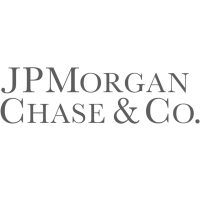
A US-based banking and financial services company. In 2019, it announced that it would stop financing private prison companies CoreCivic and GEO Group, but its current involvement cannot be verified.
JPMorgan Chase & Co. is a banking and financial services company headquartered in New York City. It used to be one of several major financiers of private prison and immigrant detention companies, having provided revolving lines of credit, term loans, and bond underwriting services to CoreCivic and GEO Group. In 2019, it announced, along with several other major financial institutions, that it would exit the private prison industry.
In 2022, CoreCivic signed a new credit agreement, replacing a 2018 $1 billion credit facility. JPMorgan Chase was part of the 2018 agreement, having provided a $112 million revolving line of credit and a $28 million term loan. Unlike in previous years, public disclosures regarding the 2022 agreement only named the administrative agent, Alter Domus. While other lenders are also involved, they were not named. Therefore, it cannot be verified whether JPMorgan Chase is still involved.
Also in 2022, GEO Group entered into a new credit agreement, replacing a previous agreement that consisted of a $900 million revolving line of credit and a $792 million term loan. Bank of America was part of the previous agreement, having provided an undisclosed amount of money to the deal. Unlike in previous years, public disclosures regarding the 2022 agreement only named the administrative agent, Alter Domus. While other lenders are also involved, they were not named. Therefore, it cannot be verified whether JPMorgan Chase is still involved.
The bank's known past involvement includes:
- In April 2013, CoreCivic issued two sets of bonds—one set totaling $325 million, with a maturity date of 2020, and the other set totaling $350 million, with a maturity date of 2023. As part of a syndicate of banks, JPMorgan Chase underwrote undisclosed amounts of these bonds.
- In September 2014, GEO Group issued $250 million of bonds, with a maturity date of 2024. As part of a syndicate of banks, JPMorgan Chase underwrote $31.3 million worth of these bonds.
- In September 2015, CoreCivic issued $250 million of bonds, with a maturity date of 2022. As part of a syndicate of banks, JPMorgan Chase underwrote $40 million worth of these bonds.
- In October 2017, CoreCivic issued $250 million of bonds, with a maturity date of 2027. As part of a syndicate of banks, JPMorgan Chase underwrote an undisclosed proportion of these bonds.
Involvement in Cop City
JPMorgan Chase has ties to the Atlanta Police Foundation (APF), the nonprofit arm of the Atlanta Police Department, which, together with the City of Atlanta, is constructing a militarized police training compound—known as Cop City—on protected forest land. As of August 2023, JPMorgan Chase's Managing Director and Head of Regional Investment Banking in Atlanta, John Richert, serves on the APF's Board of Trustees.
Other Controversies
JPMorgan Chase has also financed the fossil fuel industry. In May 2018, a coalition of environmental and human rights organizations called for a protest at the company's annual shareholder meeting for its role in climate destruction. That month, 14 protesters were arrested for blocking downtown Seattle streets as part of a nationwide protest against JPMorgan Chase for its role in funding tar sands—some of the most climate-destroying fossil fuels. In March 2017, the Oakland City Council voted to terminate its banking services contract with JPMorgan Chase due to the company's investment in the Dakota Access Pipeline and private prisons.
- On May 8, 2019 GEO Group cited in their first-quarter securities filing that growing public pressure to divest from the private prison industry and institutional resistance from banks"could have a material adverse effect on our business." The announcement comes recently after JP Morgan and Wells Fargo announced a moratorium on new financing for private detention facilities.
- On April 26, 2017, University of Wisconsin-Madison students passed a resolution to call for the university's divestment from private prisons and corporations that build border walls, naming Lockheed Martin, Raytheon, General Dynamics, Northrop Grumman, Honeywell, L-3 Communications, Boeing, Bank of America, JP Morgan Chase, BNP Paribas, Suntrust, US Bank Corp., and Wells Fargo.
